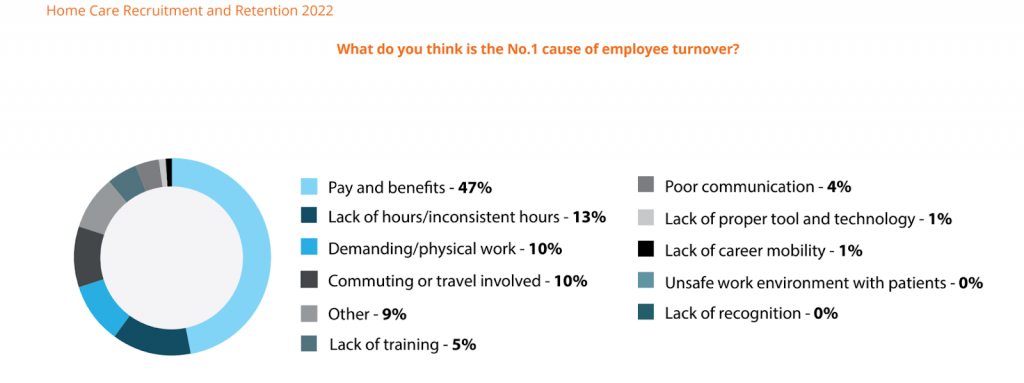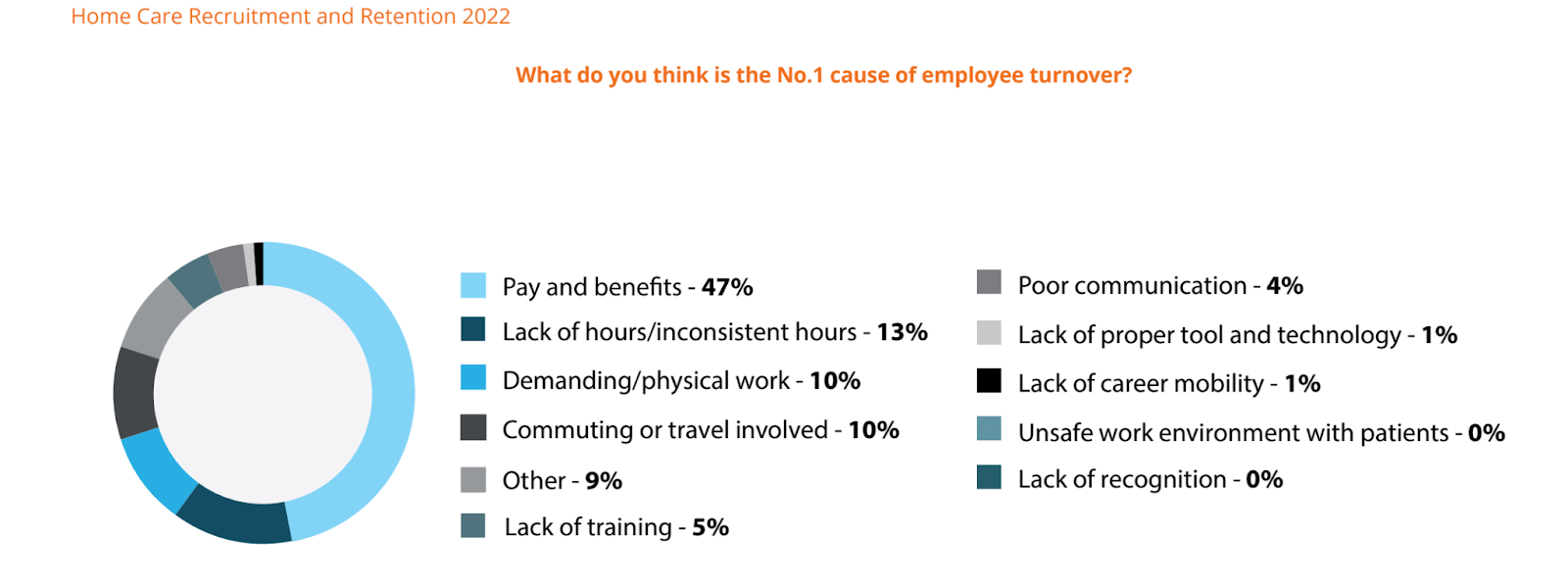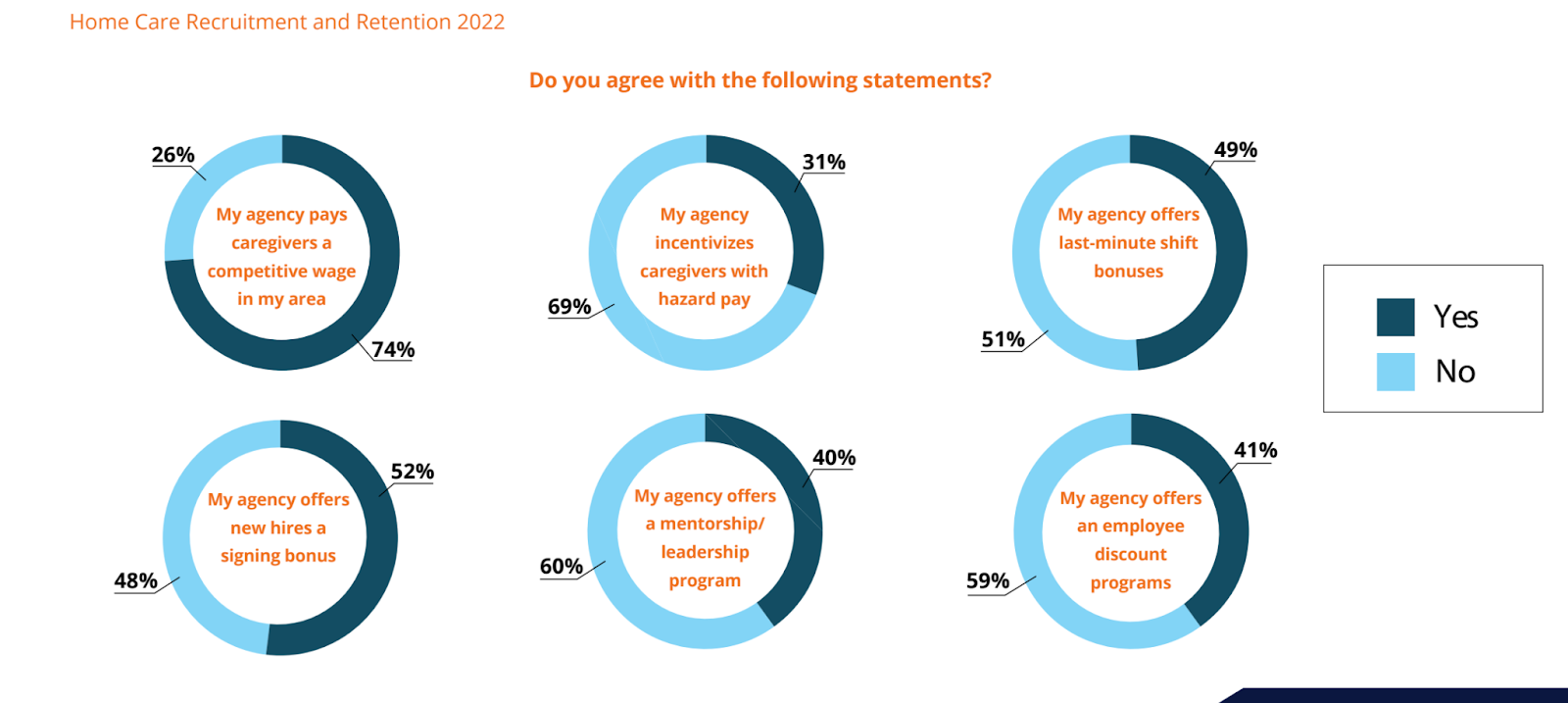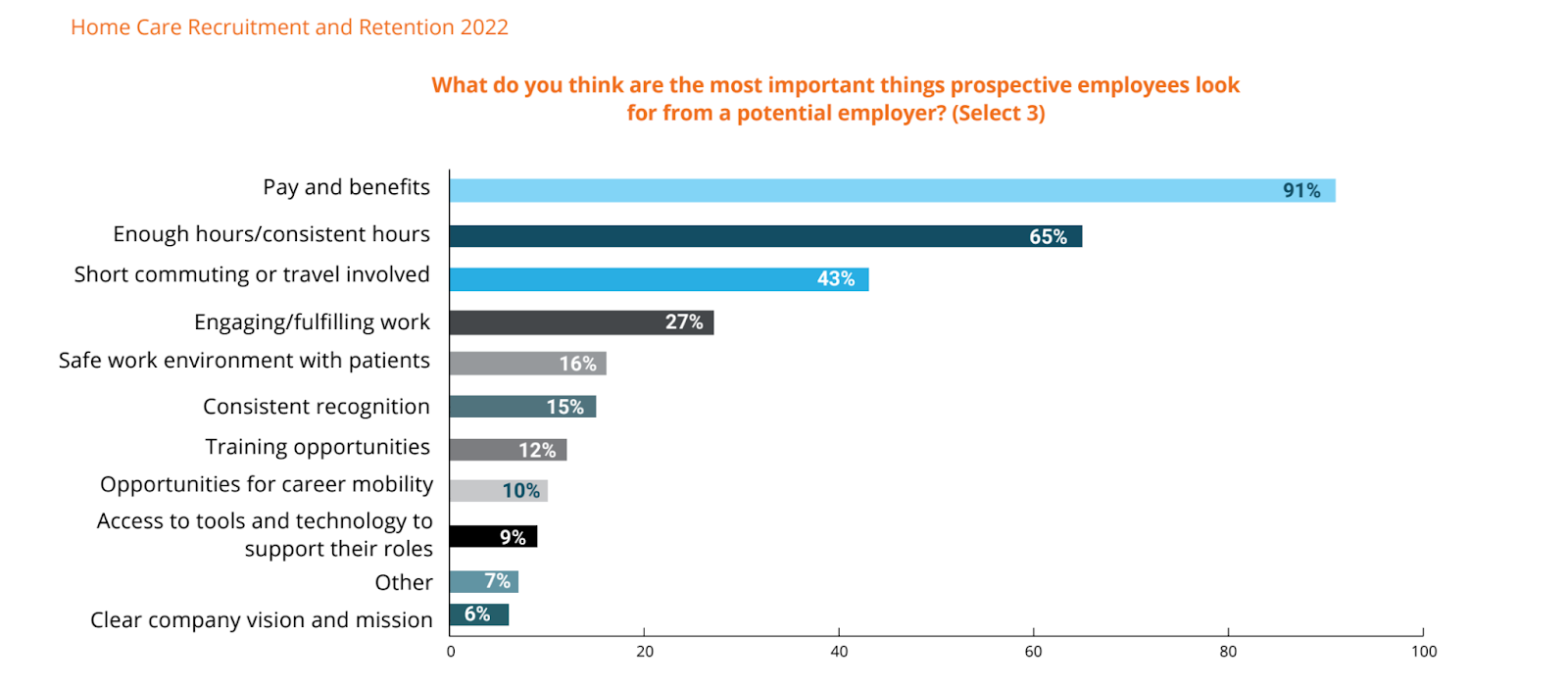
How Home-Based Care Companies Are Responding To Workforce Challenges
Home-based care providers continue to invest big on recruitment and retention efforts, new survey data suggests.
The survey is the result of a collaboration between the home care technology company AlayaCare, and Home Health Care News. It examines the current staffing climate and what providers are doing in response.
Over 100 home-based care industry professionals participated.
Overall, recruiting and retention remains a major area of focus – and a pain point – for providers as the demand for care continues to increase. Almost half of respondents, 47%, believe that pay and benefits are the main reason behind turnover. These respondents are inclined to invest in finding a solution.
“Home care is first and foremost a people business, but to have a successful agency you need care workers,” Sava Berhané, senior vice president of customer success at AlayaCare, said in the survey report. “When it comes to recruitment and retention, they are among the most challenging aspects of home-based care operations and there is no one solution to resolve this. There are many pieces to the puzzle that need to fit together that can help improve recruitment and reduce churn.”
Aside from pay and benefits, 13% of respondents believe that lack of hours or inconsistent hours are the No.1 cause of employee turnover, and 10% pointed to demanding physical work as the reason.

In the last 90 days, most home-based care organizations have increased recruiting and compensation. Specifically, 61% of respondents said that recruitment has increased at their organization during this time period, and 58% of respondents said that wages have increased at their organization.
The survey also found that hazard pay, mentorship and leadership programs, and employee discount programs were the most underused recruitment and retention resources.
On the flip side, 74% of respondents said that their agency pays caregivers a competitive wage and 52% of respondents said their agency offers new hires a signing bonus.
Additionally, only 49% of respondents said that their agency offers last-minute-shift bonuses.

The survey also provided insight on how their organization evaluates employee experience and job satisfaction. At 58%, employee experience surveys were the top tool for measuring employee satisfaction, while 57% utilized regular performance reviews and 45% relied on exit interviews.
Survey respondents said pay and benefits, enough hours or consistent hours and short commutes or travel time were the top considerations for employees when they are looking to join a company.

In terms of what home-based care agencies are doing to attract prospective employees, the majority of agencies – 59% – have made changes around pay and benefits. About 52% are making sure that employees have enough or consistent hours, which was next on the list. Rounding out the top of the list was safety of the work environment with patients at 51%.
The industry is also responding to inflation being at a 40-year high. Agencies have been reacting by improving efficiencies in existing workflows, automating paper processes and automating invoicing and billing.
Only 20% of respondents said that they were not doing anything in response to inflation, and 13% said they did not know.